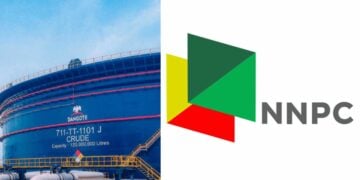Nigeria is passing through tough economic crisis in its history, with an inflation rate of 18.6 per cent in the month of June 2022 from 17.71 per cent recorded in the previous month.
Heavily in debt and a volatile operating environment, the supply side of the economy is notoriously disrupted by Russia’s invasion of Ukraine and domestic factors, especially insecurity that has almost totally stopped farming activities across the country.
Government’s statistics office – the National Bureau of Statistics (NBS) said food inflation, which is closely watched index rose to 20.6 per cent in June 2022 from 19.5 per cent recorded in May 2022. Expectedly, the Monetary Policy Committee of the Central Bank of Nigeria (CBN) responded to that by announcing an upward review of the official interest rate by 100 basis point – 14 per cent, two months after the rate was increased by 150 basis point in May 2022 – from 11.5 per cent to 13 per cent. To every economic analyst, that is a significant problem that needs to be immediately curtailed.
Some industry experts, especially those in Lagos Chamber of Commerce and Industry (LCCI) believe that the CBN is to blame for the blame for the rising inflation rate in Nigeria. They even go as far as saying that the hike in Monetary Policy Rate alone would not tame inflation. Of course, the causative factors have to be dealt with, and that must be done by the fiscal authorities.
On the contrary, many economic experts say the CBN is not to blame for the rising inflation rate. Those who spoke with this correspondent say the monetary authorities have done more than is expected of them. Economic diversification, local manufacturing, favourable policies, infrastructure and security are major instruments to reducing inflation and addressing exchange rate issues in the nation.
As it stands, beyond the economic shocks that was orchestrated by the Russian/Ukraine crisis, Nigeria’s biggest challenge is the high level of insecurity across the country. The rising inflationary figure is due to the harsh combination of persisting supply chain disruptions and pent-up demand.
An economic analyst, Stephen Kanabe who belong to the league of those who said the causes of the inflation pressures do not have direct bearing on the CBN, point to the fact that the considerable rise in core inflation resulted largely from the rising cost of production due to high energy prices associated with the persistent disruptions to power supply, hike in electricity tariff, continued scarcity of Premium Motor Spirit (PMS), and rising price of Automotive Gas Oil (AGO). “CBN does not have regulatory or operational role to influence activities in those areas. Then, how do you blame it for what happens in those areas, which are not responsible for the hike in inflation. CBN’s role is to act based on market realities. And the reality now is that inflation is high, the CBN has to tighten to control money in circulation,” he stated.
RELATED: Inflation Rises To 18.6% In Nigeria
“The CBN is not to blame,” says an investment consultant Shuaib Kabiru who agreed with the earlier warning by the International Monetary Fund (IMF) which said the 3.4 per cent real Gross Domestic Growth outlook for Nigeria is now being challenged by factors capable of undermining the growth projection.
The IMF had said the outlook is challenged by high food and energy prices, spending pressure within narrow fiscal space, persistent insecurity, particularly banditry and kidnapping and elections risks. Other downside to the economy, according to IMF are low COVID-19 vaccination rate, monetary tightening in advanced economies and muted foreign investment inflows and exchange rate pressures.
According to the NBS figures, the increase in the food component was driven by shocks to food prices associated with continued insecurity in food producing areas and along major access routes across the country; the continued impact of the war in Ukraine on the supply of fertilizer inputs, wheat and other grains; exchange rate pressures; and the impact of monetary policy normalization on capital flows away from emerging markets.
Evidently, Nigeria’s high taste for import, rather than producing for export to earn foreign exchange is one of the factors that has seen the value of the naira decrease and inflation skyrocket. From refined petrol product, wheat and used vehicles to furniture, Nigeria is largely import dependent.
But the problem is not peculiar to Nigeria. In the Emerging Markets and Developing Economies (EMDEs), inflation is also on the rise, compounded by legacy structural challenges as well as heightened exchange rate pressures, driven by rising capital flow reversals in addition to the outlined shocks from the global economy.
The apex bank had at several times called on the federal government to curb insecurity to enable farming activities to return across the country and help to reduce the inflationary pressure from the supply side of the chain. That is what is needed to solve the problem of rising prices of farm produce that have hit the rooftop.
Lecturer in Economics department at the University of Lagos Babatunde Adeoye has an idea on what should be done. To him, Nigeria needs to take steps to make the country productive in manufacturing and make the environment conducive for foreign direct invest. His argues that Nigeria must be safe to get the desired investors to come and invest in Nigeria. “You do not expect an investor to take his portfolio of resources to a country that is not safe. These are some of the key fundamentals we need to fix,” Adeoye said at the first biennial international two-day conference in Lagos.
The primary policies to reduce inflation include tight fiscal policy (higher tax), supply-side policies, wage control and appreciation in the exchange rate. The CBN’s price control and financial stability mechanisms of raising interest rates, reducing demand and helping to bring inflation under control are key to achieving lower inflation rate, they are somewhat complementary measures which depend on the fiscal activities to function.
Despite that, the CBN has over the years engaged in sustained intervention programmes that expected to make inflation abate as food supply improves and the fiscal authority sustain its efforts to tame the legacy structural challenges which put upward pressure on domestic price levels.
Economic experts have urged the fiscal authority to expand and sustain its support for all the recently deployed stimuli to the real sector of the economy.
The general agreement is that both the monetary and fiscal authorities have to work assiduously to improve macroeconomic fundamentals in Nigeria. While Nigerians wait for the federal government to jumpstart economic activities, including scrapping the scandalous fuel subsidy scheme and make the country safe for commercial activities to thrive, the CBN is already using unorthodox policy measures to tame inflation.
The CBN has released intervention programmes targeted at stimulating productivity in agriculture, manufacturing/industries, energy/infrastructure, healthcare, exports and micro, small & medium enterprises (MSMEs). Between May and June 2022, under the Anchor Borrowers’ Programme (ABP), the Bank released the sum of N3.62 billion, as disbursements to 12 projects for the cultivation of rice, wheat, and maize, bringing the cumulative disbursement under the programme to N1.01 trillion, to over 4.21 million smallholder farmers cultivating 21 commodities across the country. The Bank also disbursed N3.72 billion to finance three large-scale agricultural projects under the Commercial Agriculture Credit Scheme (CACS). These disbursements brought the cumulative disbursements under this Scheme to N744.32 billion for 678 projects in agro-production and agro-processing.
As part of its effort to support the manufacturing sector, the CBN disbursed the sum of N113.08 billion to 19 new projects under the Real Sector Facility. The funds were utilized for both greenfield and brownfield projects under the COVID-19 Intervention for the Manufacturing Sector (CIMS) and the Real Sector Support Facility from Differentiated Cash Reserve Requirement (RSSF-DCRR). Cumulative disbursements under the Real Sector Facility currently stands at N2.183 trillion for the financing of 414 real sector projects across the country.
Under the 100 for 100 Policy on Production and Productivity, the Bank has released N9.98 billion for five projects, bringing the cumulative disbursements under the intervention to N68.13 billion for 48 projects, comprising 26 in manufacturing, 17 in agriculture, three in healthcare and two in the services sector.
In the healthcare sector, the Bank disbursed N4.44 billion to three healthcare projects under the Healthcare Sector Intervention Facility (HSIF), bringing the cumulative disbursements to N133.42 billion for 129 projects, comprising 76 hospitals, 32 pharmaceuticals and 21 other healthcare services. To further expand the nation’s non-oil export basket under the Export Facilitation Initiative (EFI), the Bank released the sum of N36.00 billion for five projects in domestic production and value addition of cocoa and sesame seeds towards improving non-oil foreign currency revenue.
To improve electricity supply in order to lower the overall cost of production in the real sector, the Bank also intervened in the power sector to facilitate the deployment of enabling infrastructure. Summarily, the sum of N2.53 billion was disbursed to Distribution Companies (DisCos) for their Operational Expenditure (OpEx) and Capital Expenditure (CapEx), under the Nigeria Electricity Market Stabilisation Facility – Phase 2 (NEMSF-2). Cumulative disbursement under the NEMSF-2 currently stands at N254.46 billion. Under the National Mass Metering Programme (NMMP), the Bank disbursed N47.82 billion for the procurement and installation of 865,956 meters across the country.
Many others who spoke to LEADERSHIP on the issue said on the fiscal side, it is important that government puts on its fighting gloves to wrestle the incessant bandit attacks on farming communities even if it means overhauling the entire security apparatus.





